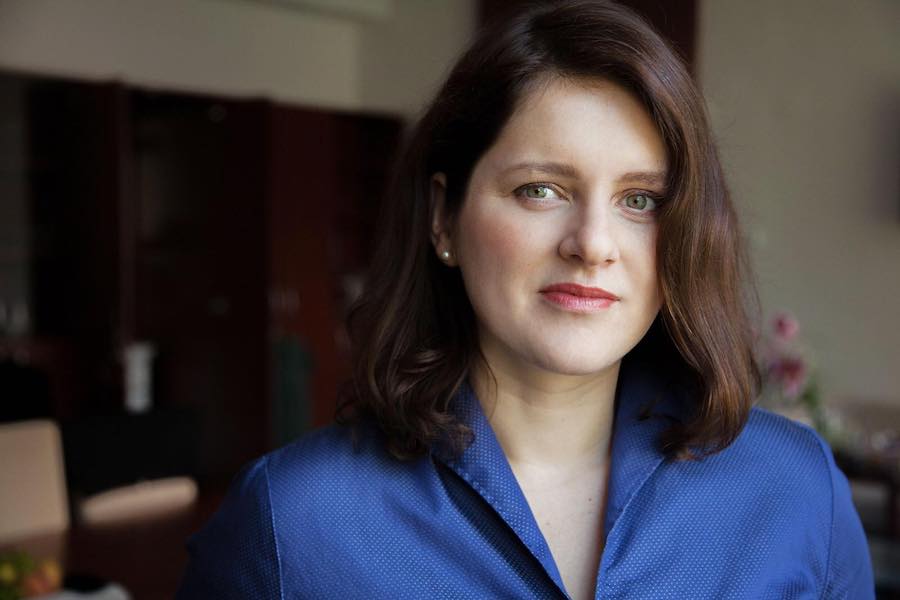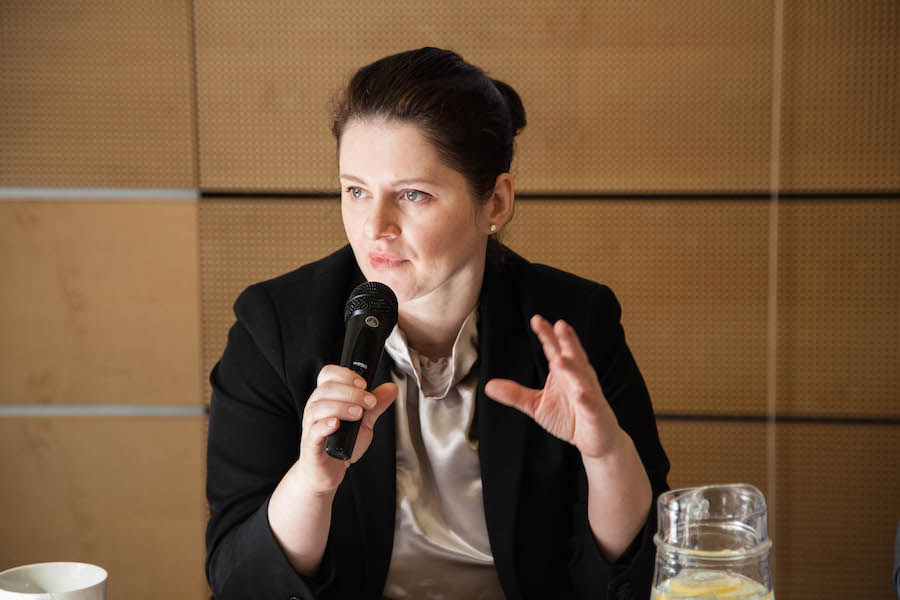“It is UNACCEPTABLE for children to live in POVERTY”

Jana Maláčová, Minister of Social Affairs
At the end of May 2019 you’re celebrating your tenth month in government. How do you assess your performance? What has been a positive surprise, and what has been a negative surprise?
ČSSD (the Czech Social Democratic Party) is doing well in government, and I am pleased to be able to play my part in this. There have been a number of successes. These include increasing the minimum wage by 1150 CZK and abolishing the three day “waiting period” for receiving sick pay. This is important to me personally, because the Social Democrats have always been the party of labour. If you work hard, then we’ve got to be able to protect you and secure you decent working conditions.
Then there’s the highest pensions increase in history. And again, if you’ve worked hard your whole life, then you deserve a dignified old age and not one mired in poverty. But our pensions system isn’t perfect, which is why I’m glad that as well as increasing pensions we have also managed to set up the Fair Pensions Commission, which is going to focus on eliminating the greatest injustices. We want to rectify women’s lower pensions and secure earlier retirement for what we term difficult professions. But we’ve still got to find new sources of revenue for our pensions system.
I also think another great success is the increase to the care allowance for Grade III and Grade IV dependency, as I consider it absolutely fundamental that these disabled people, who are in most cases reliant on the assistance of others, receive financial support from the state.
But my list wouldn’t end there. If I could summarise, I’m glad that ČSSD has been able to push the government towards more socially sensitive policies. If ODS (the Civic Democratic Party) or SPD (the Freedom and Direct Democracy Party) were in government in our place, things would look entirely different. Negative surprises can come at any time, but we then discuss it in government and we manage to come to a solution together.
Despite the good economy, you’re the Minister of Labour and Social Affairs in a country in which a tenth of the population are subject to debt collection procedures; we have 115 000 parents refusing to pay child maintenance, and we have two vulnerable social groups – families with small children and pensioners – who are highly likely to fall into a poverty trap. Families and old-age are your priorities. What are the opportunities for systematic change?
First of all, I’d like to say that when our country is doing well and we have no major crisis to deal with, it is unacceptable for children to live in poverty in the Czech Republic.
There are a number of steps that can be taken to ease the situation. We are working on a pro- family package that will include increasing child benefits, implementing back-up maintenance payments and promoting job sharing, such as for mothers on parental leave, as well as securing funding for kid’s clubs and micro-crèches. In regards to senior citizens, I’ve already spoken about the increases to pensions.
You’ve mentioned debt collection. According to the latest available statistics, 863 thousand people are subject to debt collection procedures. This is a truly horrifying figure. If these numbers were added to the figures indicating those under threat of poverty, the results would truly shock us. However, this problem is only partially my responsibility. Other ministries have to do their share of the work. In the meantime, I have unveiled an increase to the Living and Subsistence Minimum. People subject to debt collection procedures should get at least a little more. Work has simply got to pay under all circumstances. In this regard, I have therefore used a government decree amendment to apply a number of key principles, which should help to improve their living situation while also providing them with the opportunity to get out of their debt trap.
In addition, in the area of fighting poverty, we are coming down hard on all the fraudsters and those who profit from poverty, who are a menace in so-called areas of social exclusion.
You are the Deputy Chair of the Orange Club, which advocates fair representation of women in public life. We should note that according to the World Economic Forum, the Czech Republic is 88th in the world in terms of equal gender opportunities due to the low level of political and economic involvement, despite our high position in regard to equal access to health care and education. It seems from the outside that few are bothered by this low ranking, just as few are bothered by the 22 % pay gap. Justin Trudeau, the Canadian Prime Minister, has declared: “Diversity is Canada’s strength.” What can be done to ensure this statement could apply to the Czech Republic too?
The fight for women’s rights is an important topic to me. Thanks to the 22 % K Rovnosti (22 % to Equality) project study, we know that women receive an 11 % lower salary than men for the same position with the same employer; this is equivalent to men receiving a 13th salary and their female colleagues getting nothing. Across the economy, the gap is the 22 % you have mentioned. A key reason, of course, is looking after the family and children. Unequal remuneration for women and men is a fundamental topic that I want to open up at our tripartite meetings. I think this is an injustice that causes harm not just to the people in our country, but also to our economy. Again, our pro-family package applies here, as it includes funding for kid’s groups, micro-crèches and job sharing. These two measures should ensure that women should not need to face so many problems in balancing their career and working life due to looking after their children, something that can also have a negative impact on how much they take home. And, of course, we’ve got institutions such as the Labour Inspection Office and others, which need to ensure that no direct discrimination of women takes place in the workplace.

Single mothers are the most vulnerable group in the labour market; they are subject to discrimination in the workplace and, alongside pensioners, face the highest risk of falling into a poverty trap. Some companies prefer to go through the bureaucratic rigmarole of employing Filipinos or Indians rather than allowing shared work or job sharing. You are planning to submit your “family support package”, why was it hard to find support for this?
Job sharing won’t mean any further administrative burden for employers. In contrast, we have endeavoured to create our proposal such that the entire process is as simple as possible. It won’t be any more complicated than any time you want to recruit any new employee.
Thanks to job sharing, employers will be able to cover some of their needs for qualified employees, of which there are insufficient numbers today. One job could be shared, for example, by a mother on parental leave and a pensioner who would like to continue working and maintaining relations with colleagues, but is no longer able to commit full-time, or would like to spend more time with grandchildren. Budgetary reasons are often given as arguments against our pro-family package. But we should instead focus on the fact that investment in support for families will be returned to us many times over, whether in terms of a higher birth rate, or greater family financial stability. And we have a lot to invest in; we lack basic infrastructure, especially quality services in care for children under 3 years of age, support for part-time employment, etc.
Let’s stay with female solidarity. Have you encountered it? Does it operate in government? Does it work in top-level politics? Ministers Nováková and Schillerová are not well-known supporters of women or women’s topics.
It’s not for me to say. We all have a different agenda in each of our departments, and we communicate professionally together without major problems. However, when any disputes do break out, it is never at a personal level and we purely focus on discussion of our programme.
I personally have encountered the support for women that I am endeavouring to achieve in my previous roles, as well as within the Social Democrats, where this approach to women works excellently.
I’m not going to ask you how you manage with looking after your family and your career, because the question seems inappropriate since few people ask this question of men in top positions. So I’ll ask you how you work with energy, how you recharge, and how you manage to separate or bring together your work and family.
Thank you for formulating the question that way. But you’re right; it isn’t always easy. It sometimes happens that I spend the evening with my husband looking at our diaries and finding a way to reconcile everything together. But it helps that we have clearly set out what each of us does, and what the grandparents, who also help us, do. But it’s the same for most people; I look forward to relaxing with my husband, to being with my son Gustík and just enjoying our time together. Besides spending time with my family, I also find relaxation in sport and sleeping well. My favourite thing of all is to “switch off” over a good book or film.
By Linda Štucbartová

